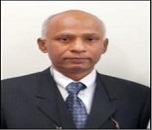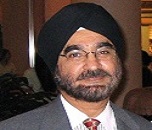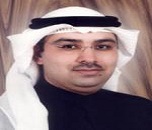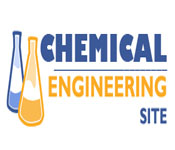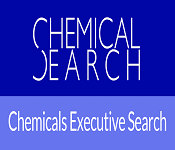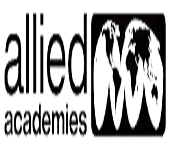Theme: Emerging technologies and scientific advancements in Chemical Engineering and its Applications
Chemical Engineering 2016
Conference Series LLC Ltd Conferences invites all the participants from all over the world to attend International Conference on Chemical Engineering (Chemical Engineering 2016) during September 12-14, 2016 Phoenix, USA which includes prompt keynote presentations, Oral talks, Poster presentations and Exhibitions.
Theme of the Chemical engineering 2016 conference is to Emerging technologies and scientific advancements in Chemical Engineering and its Applications with an objective to encourage young minds and their research abilities by providing an opportunity to meet the experts in the field of Chemical Engineering. Chemical Engineering events are designed to explore various applications in different fields.
Conference Series LLC Ltd organizes 3000+ Global Events with over 600+ Conferences, 1200+ Symposiums and 1200+ Workshops in USA, Europe & Asia with support from 1000 more scientific societies and publishes 700+ Open access journals which contains over 30000 eminent personalities, reputed scientists as editorial board members.
Track 1: Advances in Chemical & Process Engineering
Chemical Engineering Conference 2016 addresses the physical science application (e.g., chemistry and physics), and life sciences with mathematics and economics, the process of changing raw materials or chemicals into more useful or valuable forms. In addition to develop useful materials, modern chemical engineering is also concerned with pioneering valuable new materials and new methods such as nanotechnology, fuel cells and biomedical engineering. The global chemical industry and market analysis, estimated at U.S. $2.4 trillion, is one of the fastest growing business sectors of the manufacturing industry. It also shipped 3.4 billion dollars’ worth of chemicals globally across regions in 2009.
Related Conferences
4th World Congress on Petrochemistry and Chemical Engineering December 05-07, 2016 Phoenix, USA; International Petroleum Engineering Conference September 12-14, 2016 Phoenix, USA; International Conference on Polymer Chemistry November 14-16, 2016 Atlanta, USA; World Bioenergy Congress June 13-15, 2016 Rome, Italy; 2nd World Biopolymers Congress, August 04-06, 2016 Manchester, UK; 6th International Conference on Chemistry and Chemical Process 01 - 02 February 2016 Italy, Rome; 18th International Conference on Chemical Engineering and Process Technology, Istanbul, Turkey, January 25 - 26, 2016; 4th Annual International Conference on Chemistry, Chemical Engineering and Chemical Process, 18 - 19 January 2016,Singapore; 22nd International Chemical and Process Engineering Congress August 28-31, 2016, Prague, Czech Republic; 67th Annual Meeting of the International Society of Electro Chemistry 21-26 August, 2016 The Hague, The Netherlands; Canadian Society for Chemical Engineering (CSChE)
Track 2: Advances in renewable chemicals
Renewable chemicals are used for increasing the use of renewable resources rather than fossil fuels. Renewable chemicals contain all the chemicals which are produced from renewable feedstock such as microorganisms, biomass (plant, animal, and marine), and agricultural raw materials. Renewable chemicals are utilized in several applications across different Chemical industries such as in food processing, housing, textiles, environment, transportation, hygiene, pharmaceutical, and other applications. Renewable chemicals are mainly available as ketones, alcohols, organic acids, and bio-polymers. They are used in surfactants and lubricants, consumer goods, resins, and plastics for environmental purpose. There are diverse technologies available in chemical engineering which are used for making renewable chemicals The renewable chemicals market is expanding primarily the resources of renewable chemicals, and the consumer’s inclination towards using eco-friendly products. The high cost and certain subjects related to the production of renewable chemicals are the factors that are hampering the development of this market. Presently Europe forms the largest market for renewable chemicals, but Asia-Pacific is driving the market growth, and is expected to override the renewable chemicals market by 2018.
Related Conferences
International Biochemistry Conference, October 13-15, 2016 Kuala Lumpur, Malaysia; 7th International Conference on Bioinformatics October 24-25,2016 Chicago, USA; 2nd International Congress on Biofuels and Bioenergy September 01-03, 2016 Sao Paulo, Brazil; 2nd International Conference on Separation Techniques November 03-05,2016 Valencia, Spain; World Congress on Chromatography September 10-12, 2016 Amsterdam, Netherlands; 22nd International congress on chemical and process Engineering 2016,28-31 August, Prague, Czech Republic; The International Conference On Advances In Bioprocess Engineering and Technology, 20-22 January 2016, Kolkata, India; 15th International Conference on Chemical and Biochemical Engineering Beijing, China March 10, 2016; The 16th International Meeting on Chemical Sensors July 10–13, 2016 ,Ramada Plaza JeJu, Jeju Island, Korea; The European Society for Biochemical Engineering Sciences 11-14 September 2016; Czech Society of Chemical Engineering
Track 3: Thermodynamics
Thermodynamics is a division of physics involved with heat and temperature and their relation to energy and work .Thermodynamics applies to a wide range of subjects in science and engineering, mainly physical chemistry, chemical engineering and mechanical engineering. Thermodynamic equilibrium is one of the very important concepts of thermodynamics. A thermodynamic operation usually results in thermodynamic process of transfer of mass or energy that modifies the state of the system, and the transfer occurs in natural accord with the laws of thermodynamics. Thermodynamic systems are theoretical constructions used to model physical systems that convert matter and energy in terms of the laws of thermodynamics. The global Distributed Control System (DCS) market is expected to range USD 19.82 Billion by 2020, at a CAGR of 4.91% from 2015 to 2020. Distributed control systems are helping end-users to address complex process automation challenges effectively.
Related Conferences
International Physics Conference June 27-29, 2016 New Orleans, USA ; 2nd International Conference on Automobile Engineering July 11-12, 2016 Cologne, Germany ; 3rd International Conference on Industrial Engineering November 14-15, 2016 Dubai; World Biodiesel Congress & Expo December 08-10, 2016 San Antonio, USA; International Petroleum Engineering Conference September 12-14, 2016 Phoenix, USA; 24th Chemical Thermodynamics Conference August 21st to 26th 2016; 18th International Conference on Combustion, Energy Utilisation and Thermodynamics, Paris, France, January 21-22, 2016; 18th International Conference on Fluid Dynamics and Thermodynamics, January 18-19,2016, London, United Kingdom; 21st European Conference on Thermophysical Properties 3-8 September 2017, Austria, Graz; World Chemical Engineering Council, Brazilian Association of Chemical Engineering
Track 4: Chemical Industry and Market Analysis
The Chemical Industry and Market Analysis is one of the quickest growing segments in manufacturing industry. Chemicals broadly contain bulk petrochemicals and intermediates, minerals, polymers, more derivatives, etc. The industry has been undergoing through important structural modifications in the recent years, such as new developing markets, change in manufacturing places, superior technologies, and rising raw material cost. The key challenges for the industry are government regulations, carbon-emission policies, and economies of scale. Transparency Market Research provides study on sealants, adhesives, explosives, chemicals, agro-chemicals, petrochemicals, renewable chemicals paints and coatings, colorants, biodegradable plastics, and other chemicals.
Related Conferences:
4th World Congress on Petrochemistry and Chemical Engineering December 05-07, 2016 Phoenix, USA; International Petroleum Engineering Conference September 12-14, 2016 Phoenix, USA; International Polymer Chemistry Conference November 14-16, 2016 Atlanta, USA; World Congress on Chromatography September 10-12, 2016 Amsterdam, Netherlands; International Applied Chemistry Conference October 17-18, 2016 Istanbul, Turkey; 6th International Conference on Chemistry and Chemical Process 01-02 February 2016 Italy, Rome; 18th International Conference on Chemical Engineering and Process Technology, Istanbul, Turkey, January 25-26, 2016; 4th Annual International Conference on Chemistry, Chemical Engineering and Chemical Process, 18-19 January 2016,Singapore; The European Society for Biochemical Engineering Sciences 11-14 September 2016; 18th International Conference on Polymeric Materials Science and Technology, Dubai, UAE, March 15 - 16, 2016; American Chemical Society, AIChE
Track 5: Electrochemical Engineering
An Electrochemical Synthesis is a chemical reaction that is caused by the movement of electrical current. These processes are a type of oxidation-reduction chemical reactions in which one atom or molecule loses an electron to another atom or molecule. In electrochemical process, the atoms or molecules in the reaction are relatively far apart from each other compared to other reactions, forcing the electrons being transferred to travel a greater distance and thereby produce an electrical current. Many natural phenomena are depend on Electrochemical Methods, such as the corrosion of metals, the ability of some sea creatures to produce electrical fields, and the workings of the nervous systems of humans and other animals. They also play an important part in modern Chemical technology, most prominently in the storage of electrical power in batteries, and the electrochemical process called electrolysis is important in modern industry. Neurons use electrochemical processes to transmit data through the nervous system, allowing the nervous system to communicate with itself and with the rest of the body. The electrochemical instruments market is segmented on the basis of products, methodologies, end user, and region. The global electrochemical instruments market was valued at $1,713.0 Million in 2014 and is poised to increase at a CAGR of 5.2% during the forecasted period.
Related Conferences
2nd International Conference on Quantum Physics and Nuclear Engineering April 24-26, 2017 Frankfurt, Germany; International Physics Conference June 27-29, 2016 New Orleans, USA ; 2nd Global Summit on Electronics and Electrical Engineering October 24-26, 2016 at Chicago, USA; International Conference on Atomic and Nuclear Physics Atlanta, USA Nov 17-19, 2016 ; 2nd World Biopolymers Congress August 04-06, 2016 Manchester, UK; 6th International Conference on Chemistry and Chemical Process 01 - 02 February 2016 Italy, Rome; 18th International Conference on Chemical Engineering and Process Technology, Istanbul, Turkey, January 25 - 26, 2016; 4th Annual International Conference on Chemistry Chemical Engineering and Chemical Process, 18 - 19 January 2016,Singapore; 22nd International congress on chemical and process Engineering 2016, 28-31 August, Prague, Czech Republic; 67th Annual Meeting of the International Society of Electro Chemistry 21-26 August, 2016 The Hague, The Netherlands; Canadian Society for Chemical Engineering (CSChE), Czech Society of Chemical Engineering
Track 6: Biochemical engineering
Biochemical engineering is a department of Chemical Engineering that mainly deals with the design and construction of unit operations that involve biological organisms or molecules, such as bioreactors. Its applications are in the petrochemical industry, food and pharmaceutical, biotechnology, and water treatment industries. A bioreactor may also refer to a device meant to grow cells or tissues in the ambience of cell culture. These devices are being developed for use in tissue engineering or biochemical engineering. Different types of Bioreactors are Photo bioreactor, Sewage treatment, Up and Down agitation bioreactor, NASA tissue cloning bioreactor, Moss bioreactor. The biomaterials market currently generates more than $30 billion globally, and is expected to increase at a double-digit CAGR in the next few years. Orthopaedic applications form the largest division of the overall biomaterials market. Polymer-based biomaterials are expected to initiate the next wave of market growth; and the future biochips and biosensors business segments also offer huge growth potential.
Related Conferences
International Conference on Biochemistry October 13-15, 2016 Kuala Lumpur, Malaysia; 7th International Conference on Bioinformatics October 24-25,2016 Chicago, USA; 4th World Congress on Petrochemistry and Chemical Engineering December 05-07, 2016 Phoenix, USA; International Petroleum Engineering Conference September 12-14, 2016 Phoenix, USA; 4th International Conference on Bioprocess and Biosystems Engineering October 20-21, 2016 Houston, USA; 22nd International congress on chemical and process Engineering 2016,28-31 August, Prague, Czech Republic; The International Conference On Advances In Bioprocess Engineering And Technology, 20-22 January 2016, Kolkata, India; 15th International Conference on Chemical and Biochemical Engineering Beijing, China March 10, 2016; The 16th International Meeting on Chemical Sensors July 10–13, 2016 ,Ramada Plaza JeJu,Jeju Island, Korea; The European Society for Biochemical Engineering Sciences 11-14 September 2016; World Chemical Engineering Council, Brazilian Association of Chemical Engineering
TRACK 7 : Chemical Polymer Technology
Polymerization is the process of combination of many small biochemical molecules known as monomers into a covalently bonded chain. During the polymerization process, few chemical groups may be lost from each monomer. Monomers are terephthalic acid, ethylene glycol Laboratory synthetic method are step-growth polymerization and chain-growth polymerization. The essential variation between the two is that in chain growth polymerization, monomers are added to the chain one at a time only, such as in polyethylene, But in step-growth polymerization chains of monomers may combine with one another directly. The global polymer chemistry market is projected to reach USD 4.4 Billion by 2020, signifying firm annualized growth of 7% between 2015 and 2020.
Related Conferences
International Conference on Polymer Science and Engineering June 23-24, 2016 New Orleans, USA; 2nd World Biopolymers Congress August 04-06, 2016 Manchester, UK; 3rd International Conference on Biopolymers and Bioplastics September 12-14, 2016 San Antonio, USA; 6th International Conferenc on Materials Science and Engineering September 01-03, 2016 Atlanta, USA; International Polymer Chemistry Conference November 14-16, 2016 Atlanta, USA; 24th Chemical Thermodynamics conference August 21st to 26th 2016; 18th International Conference on Fluid Mechanics and Thermodynamics Rio de Janeiro, Brazil, February 1-2, 2016; 18th International Conference on Combustion, Energy Utilisation and Thermodynamics, Paris, France, January 21-22, 2016; 18th International Conference on Fluid Dynamics and Thermodynamics, January 18-19,2016, London, United Kingdom; 21st European Conference on Thermophysical Properties 3-8 September 2017, Austria, Graz; American Chemical Society, AIChE
TRACK 8: Petroleum Refining and Petrochemicals
Petrochemicals are chemical products developed from petroleum. Some chemical compounds made from petroleum are also obtained from fossil fuels, such as coal or natural gas, and renewable sources such as corn or sugar cane. The most common petrochemicals are olefins and aromatics (including benzene, toluene and xylene isomers), Synthesis gas. Oil refineries produce olefins and aromatics by method of fluid catalytic cracking of petroleum fractions. Chemical plants produce olefins by a steam cracking of natural gas liquids like ethane and propane. Aromatics are produced by a process of catalytic reforming of naphtha. Petroleum refining processes are nothing but chemical engineering processes used in petroleum refineries to change crude oil into useful products such as liquefied petroleum gas (LPG), gasoline, petrol, kerosene, jet fuel, diesel oil and fuel oils. Each refinery has its own specific arrangement and combination of refining processes largely determined by the refinery places, desired products and economic considerations. The oil and gas security and service market size is estimated to increase from USD 26.34 Billion in 2015 to USD 33.90 Billion by 2020, at an estimated (CAGR) of 5.2% from 2015 to 2020.
Related Conferences
World Congress On Petroleum and Refinery July 21-23, 2016 Brisbane, Australia; 4th World Congress on Petrochemistry and Chemical Engineering December 05-07, 2016 Phoenix, USA; International Petroleum Engineering Conference September 12-14, 2016 Phoenix, USA; 2nd International Congress on Biofuels and Bioenergy September 01-03, 2016 Sao Paulo, Brazil; 2nd International Conference on Separation Techniques November 03-05,2016 Valencia, Spain; 6th International Conference on Chemistry and Chemical Process 01-02 February 2016 Italy, Rome; 18th International Conference on Chemical Engineering and Process Technology, Istanbul, Turkey, January 25-26, 2016; 4th Annual International Conference on Chemistry, Chemical Engineering and Chemical Process, 18-19 January 2016,Singapore; The European Society for Biochemical Engineering Sciences 11-14 September 2016; 18th International Conference on Polymeric Materials Science and Technology, Dubai, UAE, March 15 - 16, 2016; Canadian Society for Chemical Engineering (CSChE), Czech Society of Chemical Engineering
TRACK 9: Inorganic Chemistry usage in chemical engineering
Inorganic chemistry handles with the synthesis and behaviour of inorganic and organometallic compounds. This field covers all chemical compounds but not the carbon based compounds which are the subjects of organic chemistry. It has applications in every aspect of the chemical industry catalysis, material science, pigments, surfactants, coatings, medicine, fuel, agriculture. And many inorganic compounds are ionic compounds, consisting of cat-ions and anions joined by ionic bonding. Inorganic compounds are naturally found in nature as minerals. The easiest inorganic reaction is double displacement when in mixing of two salts the ions are swapped without a change in oxidation state. In redox reactions one reactant, the oxidant lowers its oxidation state and the other reactant has its oxidation state increased. Different classifications are : Coordination compounds , Main group compounds , Transition metal compounds , Organometallic compounds , Bioinorganic compounds , Solid state compounds. The global inorganic scintillators market is broadly categorized into healthcare, nuclear power plants, industrial and defence. In 2013, the healthcare accounted for the largest share of the global inorganic scintillators market, by application.
Related Conferences
Euro Global Summit on Biomass August 01-03, 2016 Birmingham, UK; 4th World Congress on Petrochemistry and Chemical Engineering December 05-07, 2016 Phoenix, USA; International Petroleum Engineering Conference September 12-14, 2016 Phoenix, USA;2nd International Congress on Biofuels and Bioenergy September 01-03, 2016 Sao Paulo, Brazil; 2nd International Conference on Separation Techniques November 03-05,2016 Valencia, Spain; 6th International Conference on Chemistry and Chemical Process 01 - 02 February 2016 Italy, Rome; 18th International Conference on Chemical Engineering and Process Technology, Istanbul, Turkey, January 25 - 26, 2016; 4th Annual International Conference on Chemistry Chemical Engineering and Chemical Process, 18 - 19 January 2016,Singapore; 22nd International congress on chemical and process Engineering 2016, 28-31 August, Prague, Czech Republic; 67thAnnual Meeting of the International Society of Electro Chemistry 21-26 August, 2016 The Hague, The Netherlands; World Chemical Engineering Council, Brazilian Association of Chemical Engineering
TRACK 10 : Applications of Chemical Technology
The branch of engineering that handles with the technology of large-scale chemical production and the manufacture of products through chemical process. The Modern products of chemistry lead to cutting edge advancements—applied technology in medical devices, aerospace, computing, fuels and more. As technology advances our nation’s primary chemicals management law must be updated to adapt to scientific progress and to promote that chemical products are safe for intended use. Chemistry Usage in Nanotechnology has many diverse applications, some of which include delivering drugs to specific cells, and repairing of damaged human tissue, improving efficiency of solar energy production and enabling both lighter, higher performance plastics for aerospace, construction and vehicles. Chemistry in the Space Age Aerospace needs the products of chemistry such as plastic space suits that can withstand 600 degree (Fahrenheit) temperature ranges. Chemistry in Computing has widespread use of touch screens, enabled by plastics, adhesives and other products of chemical technology are employed on cell phones, PDAs, computer screens. The global construction chemicals market(2015–2020) is estimated to reach USD 33.98 Billion by 2020 increasing at a rate of 7.62% between 2015 and 2020.
Related Conferences
Euro Global Summit on Biomass August 01-03, 2016 Birmingham, UK; International Conference on Polymer Chemistry November 14-16, 2016 Atlanta, USA; 4th World Congress on Petrochemistry and Chemical Engineering December 05-07, 2016 Phoenix, USA; International Petroleum Engineering Conference September 12-14, 2016 Phoenix, USA; 2nd International Congress on Biofuels and Bioenergy September 01-03, 2016 Sao Paulo, Brazil; 22nd International congress on chemical and process Engineering 2016,28-31 August, Prague, Czech Republic; The International Conference On Advances In Bioprocess Engineering And Technology, 20-22 January 2016, Kolkata, India; 15th International Conference on Chemical and Biochemical Engineering Beijing, China March 10, 2016; The 16th International Meeting on Chemical Sensors July 10–13, 2016 ,Ramada Plaza JeJu,Jeju Island, Korea; The European Society for Biochemical Engineering Sciences 11-14 September 2016; AIChE
TRACK 11: Separation Process
In the field of Chemical Engineering separation process is the mass transfer that converts the substance mixture into specific product mixtures. In some cases, a separation may fully divide the mixture into its pure constituents. Separation Techniques are conducted based on the differences between chemical properties, or physical properties like size, shape, mass, density and chemical affinity, between the constituents of a mixture, and are often differentiated according to the specific differences they use to achieve .The Global process Instrumentation market is expected to reach $18.96 Billion by 2020, at a CAGR of 3.34% from 2014 to 2020. Region leads the overall Process Instrumentation market.
Related Conferences
International Conference on Physics June 27-29, 2016 New Orleans, USA ; 2nd International Conference on Automobile Engineering July 11-12, 2016 Cologne, Germany ; 3rd International Conference on Industrial Engineering November 14-15, 2016 Dubai; World Biodiesel Congress & Expo December 08-10, 2016 San Antonio, USA; International Petroleum Engineering Conference September 12-14, 2016 Phoenix, USA; 6th International Conference on Chemistry and Chemical Process 01-02 February 2016 Italy, Rome; 18th International Conference on Chemical Engineering and Process Technology, Istanbul, Turkey, January 25-26, 2016; 4th Annual International Conference on Chemistry, Chemical Engineering and Chemical Process, 18-19 January 2016,Singapore; The European Society for Biochemical Engineering Sciences 11-14 September 2016; 18th International Conference on Polymeric Materials Science and Technology, Dubai, UAE, March 15 - 16, 2016; Canadian Society for Chemical Engineering (CSChE)
TRACK 12: Biomolecular Engineering
Biomolecular Engineering is an emerging discipline at the interface of molecular biology, biophysical chemistry, and chemical engineering. Biomolecular engineering is the application of engineering principles and practices to the purposeful manipulation of molecules of biological origin. A biomolecular engineer studies and manufactures new molecules to create products and processes that don't already exist in the natural world. Biomolecular engineering research includes mathematical modelling of biomolecules and biological processes, their quantitative measurements, visiualizations , multidimensional and detailed structural analyses, protein structure prediction using current approaches protein structure- function relationships, rational design of bioactive molecules discovery of new target molecules leading to new drug discoveries, construction of artificial gene circuits to produce novel gene products. Worldwide, biomedical engineering is rapidly developing given its crucial role in the biomedical field.
Related Conferences
International Conference on Biochemistry October 13-15, 2016 Kuala Lumpur, Malaysia; 7th International Conference on Bioinformatics October 24-25,2016 Chicago, USA; 4th International Conference on Bioprocess and Biosystems Engineering October 20-21, 2016 Houston, USA; 4th World Congress on Petrochemistry and Chemical Engineering December 05-07, 2016 Phoenix, USA; International Petroleum Engineering Conference September 12-14, 2016 Phoenix, USA; 22nd International congress on chemical and process Engineering 2016,28-31 August, Prague, Czech Republic; The International Conference On Advances In Bioprocess Engineering And Technology, 20-22 January 2016, Kolkata, India; 15th International Conference on Chemical and Biochemical Engineering Beijing, China March 10, 2016; The 16th International Meeting on Chemical Sensors July 10–13, 2016 ,Ramada Plaza JeJu,Jeju Island, Korea; The European Society for Biochemical Engineering Sciences 11-14 September 2016; Czech Society of Chemical Engineering
TRACK 13: Process Chemical Engineering Exhibition & Career
Process engineering focuses on the design, operation, control, and optimization of chemical, physical, and biological processes. Process engineering encompasses a vast range of industries, such as chemical, petrochemical, agriculture, mineral processing, advanced material, food, pharmaceutical, software development, and biotechnological industries, renewable energy, biofuel production, environmental control, fermentation, Waste Water Treatment, food industry. Process engineers are responsible for ensuring that factories are able to run at the highest level of efficiency while producing as little waste or pollution as possible. Outside the manufacturing industry, chemical & process engineers may work in environmental.
Related Conferences
4th World Congress on Petrochemistry and Chemical Engineering December 05-07, 2016 Phoenix, USA; International Petroleum Engineering Conference September 12-14, 2016 Phoenix, USA; International Polymer Chemistry Conference November 14-16, 2016 Atlanta, USA; World Bioenergy Congress June 13-15, 2016 Rome, Italy; 2nd World Biopolymers Congress August 04-06, 2016 Manchester, UK; 6th International Conference on Chemistry and Chemical Process 01 - 02 February 2016 Italy, Rome; 18th International Conference on Chemical Engineering and Process Technology, Istanbul, Turkey, January 25 - 26, 2016; 4th Annual International Conference on Chemistry Chemical Engineering and Chemical Process, 18 - 19 January 2016,Singapore; 22nd International congress on chemical and process Engineering 2016, 28-31 August, Prague, Czech Republic; 67th Annual Meeting of the International Society of Electro Chemistry 21-26 August, 2016 The Hague, The Netherlands; American Chemical Society
Conference Series LLC Ltd Conferences invites all the participants from all over the world to attend International Conference on Chemical Engineering during September 12-14, 2016 Phoenix, USA. Which includes prompt keynote presentations, Oral talks, Poster presentations and Exhibitions.
Chemical Engineering 2016 aims to bring together researchers, engineers, environmentalist and delegates from petroleum, chemical and refinery companies. Meet Inspiring Speakers and Experts at our 1000+ Global Events inclusive of 300+ Conferences, 500+ Workshops and 200+ Symposiums every year on Pharma, Medicine, Science and Technology. The theme of conference is “Emerging technologies and scientific advancements in Chemical Engineering and its Applications”. Chemical Engineering Conference aims to promote various researches on chemicals among scientists, academia and industries. Chemical Engineering 2016 offers various topics for interaction including Thermodynamics, Electrochemical process, Biochemical engineering, Advances in chemical & Process engineering , Polymer Technology to useful Energy.
Target Audience:
- Chemical Engineers
- Chemists
- Chemical Scientists
- Chemical engineering Students
- Chemical Industries
- Chemical engineering Associations and Societies
- Biochemical engineers
- Polymer engineers
- Chemical Companies
(THEME : Emerging technologies and scientific advancements in Chemical Engineering and its Applications)
Summary:
Chemical Engineering is a branch of engineering that applies physical sciences and life sciences. It essentially deals with the engineering of chemicals, energy and the processes that create and/or convert them. Modern chemical engineers are concerned with processes that convert raw materials or chemicals into more useful or valuable forms. They are also concerned with pioneering valuable materials and related techniques which are often essential to related fields such as nanotechnology, fuel cells and bioengineering. A unit operation is a physical step in an individual chemical engineering process. Unit operations (such as crystallization, filtration, drying and evaporation) are used to prepare reactants, purifying and separating its products, recycling unspent reactants, and controlling energy transfer in reactors. Chemical engineers "develop economic ways of using materials and energy". Chemical engineers use chemistry and engineering to turn raw materials into usable products, such as medicine, petrochemicals and plastics on a large-scale, industrial setting.
The organizing committee is gearing up for an informative conference program including plenary lectures, symposia, workshops on a variety of topics, poster presentations and various programs for participants from all over the world. We invite you to join us at the Chemical Engineering Conference 2016, where you will be sure to have a meaningful experience with scholars from around the world. All members of the Chemical Engineering 2016 organizing committee look forward to meeting you in USA, PHOENIX.
For more details please visit: http://chemicalengineering.conferenceseries.com/
Importance& Scope:
Chemical Engineering has a number of applications in our day to day lives. Chemical engineering also has applications in production of electronics, clothing, paper and photographic equipment etc. The scope for individuals in the field of chemical engineering is bound to grow in time. This is mainly because of industrial growth as well as the related scarcity of the resources those are required. In future years, chemical engineers will be needed to develop synthetic replacement for those resources as well as materials that are low in supply. In overall, it can be said that chemical engineers will be able to make very crucial contributions to the improvement in addition to the maintenance of the quality of our lives. Chemical Engineering techniques are used for the production of usable, high quality products such as fibres, fabrics, paints, medical drugs, biomaterials, gasoline, lubricants etc used in various industries such as textile, food, plastics, automotive, aerospace, petroleum, oil and gas, biomedical, biotechnology and pharmaceuticals, thereby increasing the scope of Chemical Engineering.
This conference will highlight the important topics like
- Advances in Chemical & Process Engineering
- Advances in renewable chemicals
- Thermodynamics
- Chemical Industry and Market Analysis
- Electrochemical Engineering
- Biochemical engineering
- Chemical Polymer Technology
- Petroleum Refining and Petrochemicals
- Inorganic chemistry usage in chemical engineering
- Applications of Chemical Technology
- Separation process
- Biomolecular Engineering
- Process Chemical Engineering Exhibition & Career
- Crystallization
- Entrepreneurs Investment Meet
Why Phoenix:
Phoenix is the capital and largest city of the state of Arizona. Phoenix is the most populous state capital in the United States, as well as the sixth most populous city nationwide. Phoenix is the anchor of the Phoenix metropolitan area, also known as the Valley of the Sun, which in turn is a part of the Salt River Valley. The city is the 13th largest metro area by population in the United States. Phoenix is the county seat of Maricopa County and is one of the largest cities in the United States by land area. Phoenix has a hot desert climate typical of the Sonoran Desert in which it lies. Phoenix has long, very hot summers and short, mild winters.
The early economy of Phoenix was focused primarily on agriculture and natural resources, dependent on the "5Cs" of copper, cattle, climate, cotton, and citrus. The top five industries were: real estate, financial services, manufacturing, health care, and retail. The city is a home to numerous institutions of higher learning Arizona State University, Barrow Neurological Institute, Grand Canyon University, Arizona Christian University, University of Phoenix, Phoenix School of Law.
Why to attend???
Chemical Engineering 2016 is an exciting opportunity to showcase the new technology, the new products of your company, and/or the service your industry may offer to a broad international audience. Conduct workshops, distribute information, meet with current and potential customers, make a splash with a new product line, and receive name recognition at this 2-day event. World-renowned speakers, the most recent techniques, tactics, and the newest updates in field of Chemical Engineering are hallmarks of this Chemical Engineering Conference.
A Unique Opportunity for Advertisers and Sponsors at this International event:
Major Chemical Engineering Associations around the Globe:
European Federation of Chemical Engineering
American Chemical Society (ACS)
Canadian Society for Chemical Engineering (CSChE)
Society of Chemical Engineers New Zealand
Argentinian Association for Chemical Engineers
National Organization for the Professional Advancement of Black Chemists and
Chemical Engineers (NOBCChE)
Indian Institute of Chemical Engineers (IIChe)
Society of Chemical Engineers
Thai Institute of Chemical Engineering and Applied Chemistry
Israel Institute of Chemical Engineers (IIChe)
For details please click here
Conference Highlights
- Thermodynamics
- Electrochemical Engineering
- Biochemical engineering
- Chemical Polymer Technology
- Petroleum Refining and Petrochemicals
- Applications of Chemical Technology
- Inorganic chemistry usage in chemical engineering
- Advances in renewable chemicals
- Advances in Chemical & Process Engineering
- Chemical Industry and Market Analysis
- Entrepreneurs Investment Meet
- Separation process
- Biomolecular Engineering
- Process Chemical Engineering Exhibition & Career
- Crystallization
- Renewable energy & Environment
To share your views and research, please click here to register for the Conference.
To Collaborate Scientific Professionals around the World
| Conference Date | September 12-14, 2016 | ||
| Sponsors & Exhibitors |
|
||
| Speaker Opportunity Closed | Day 1 | Day 2 | Day 3 |
| Poster Opportunity Closed | Click Here to View | ||
Useful Links
Special Issues
All accepted abstracts will be published in respective Our International Journals.
- Journal of Chemical Engineering & Process Technology
- Journal of Advanced Chemical Engineering
- Journal of Chromatography & Separation Techniques
Abstracts will be provided with Digital Object Identifier by















